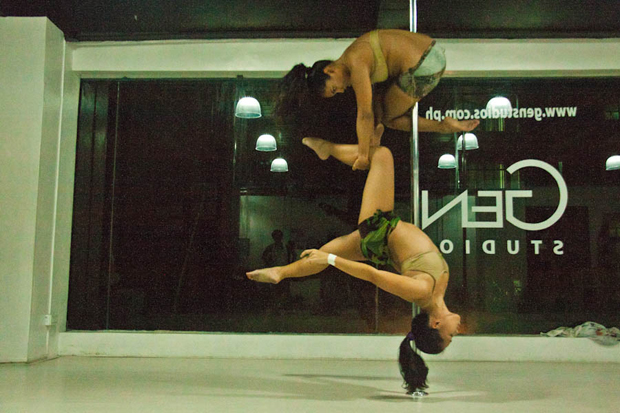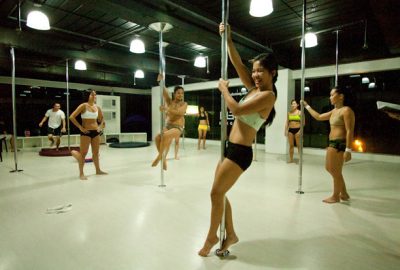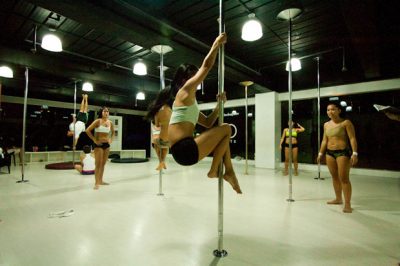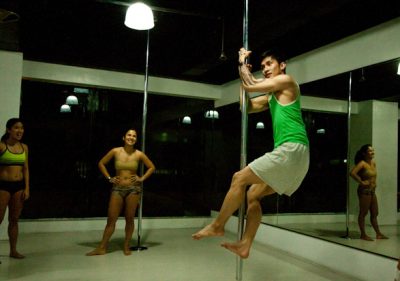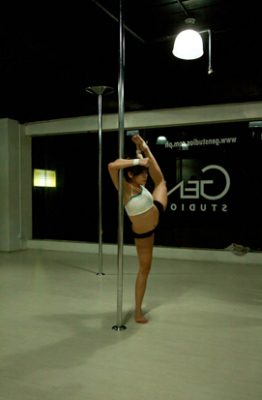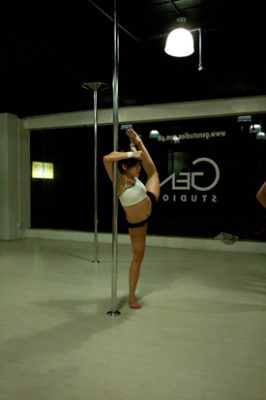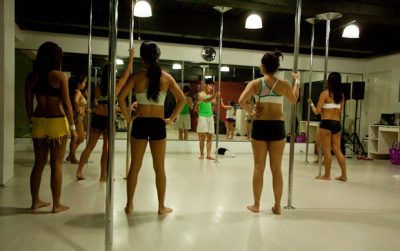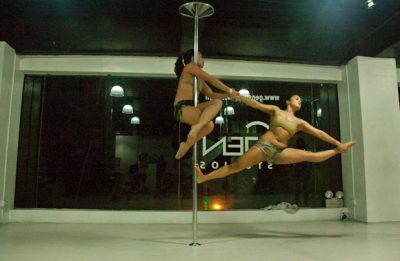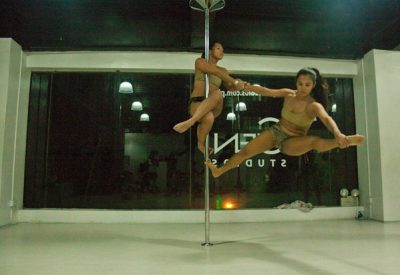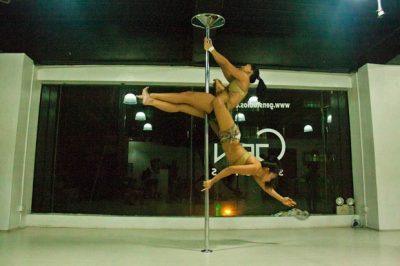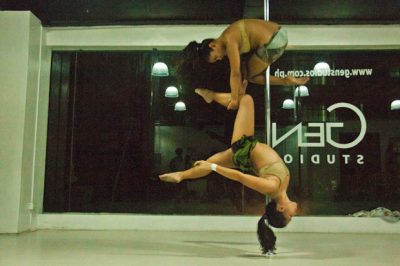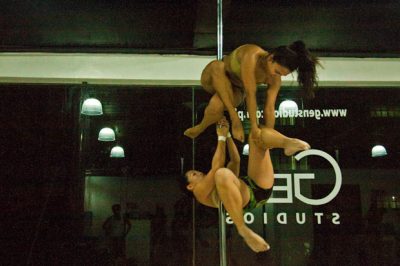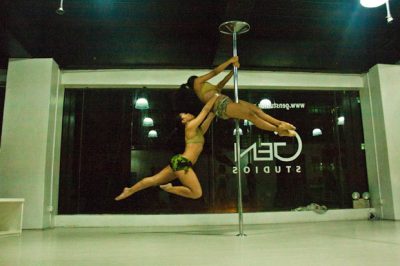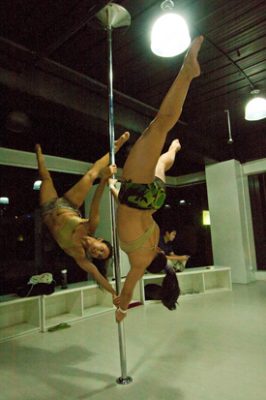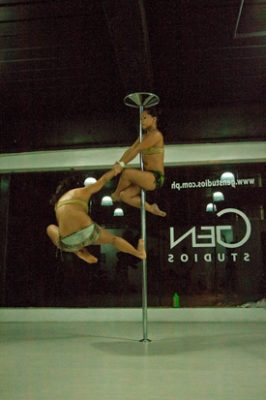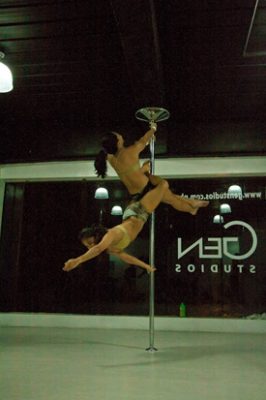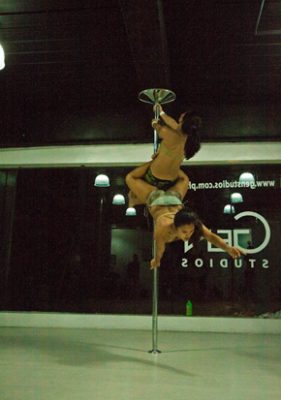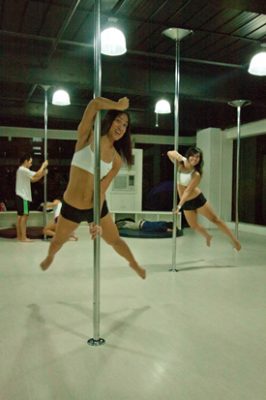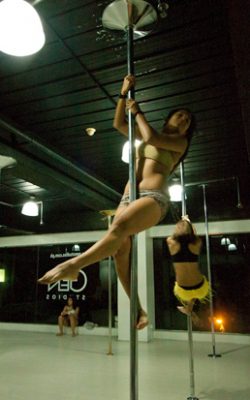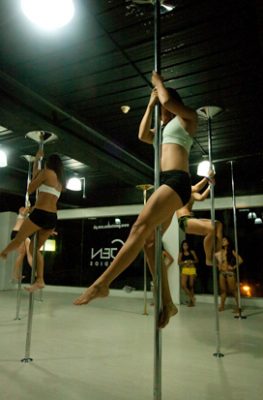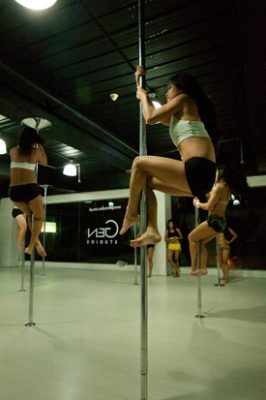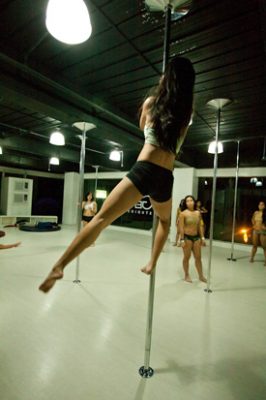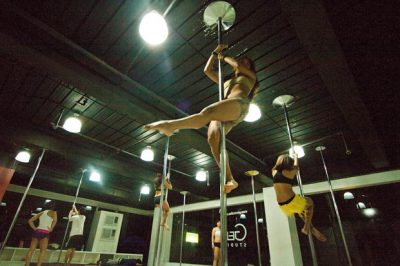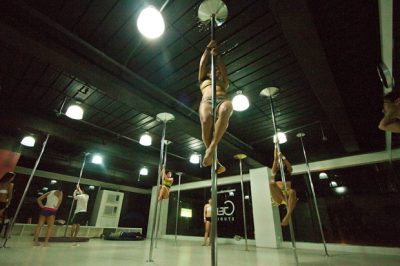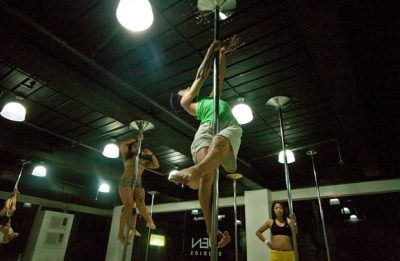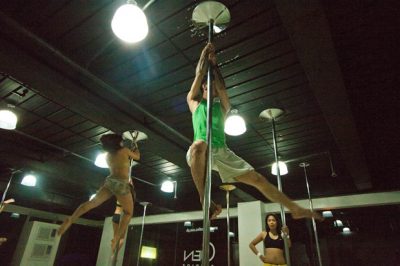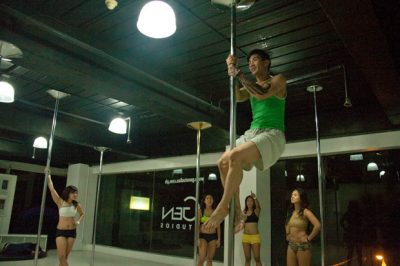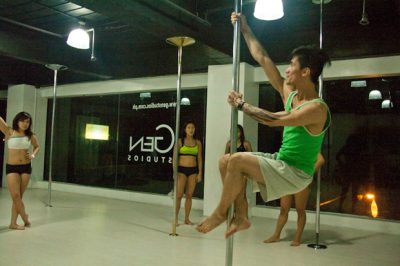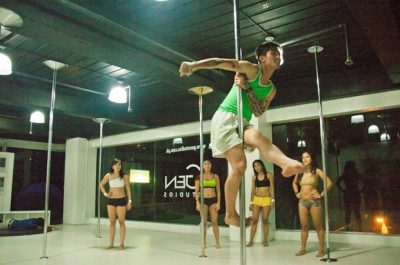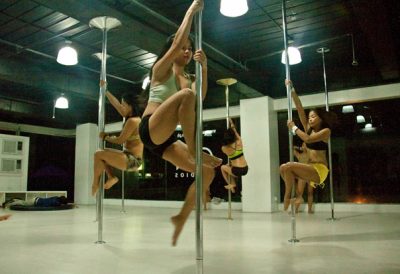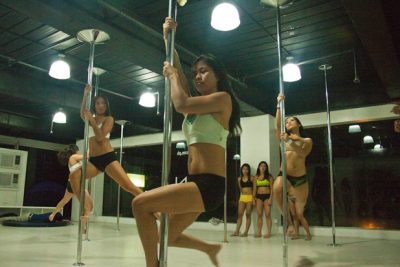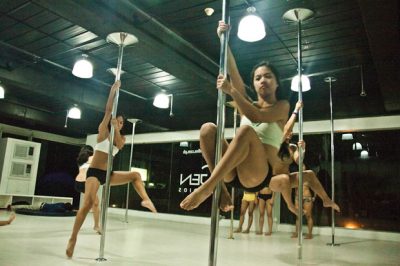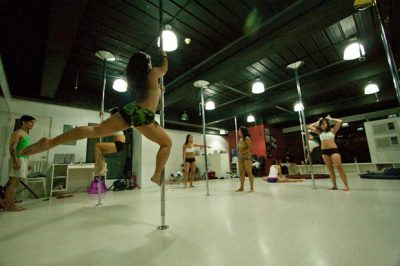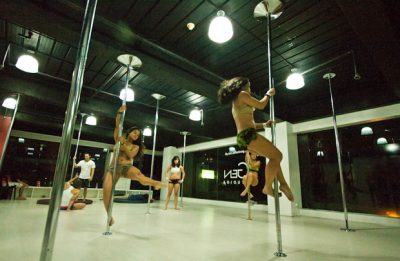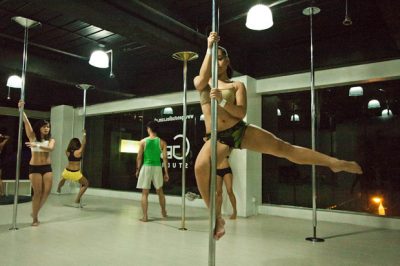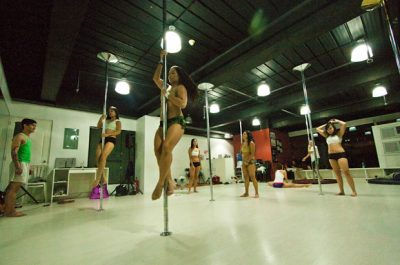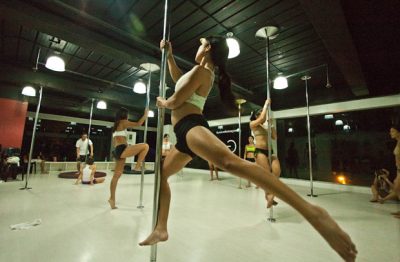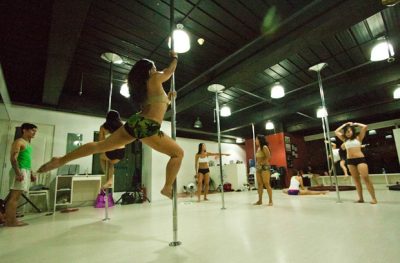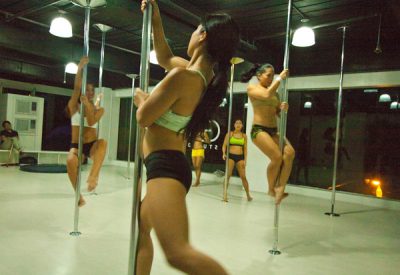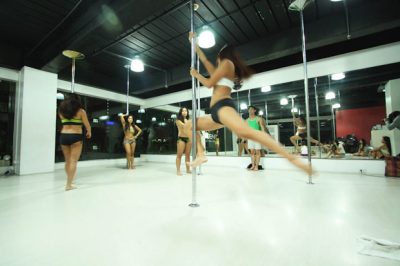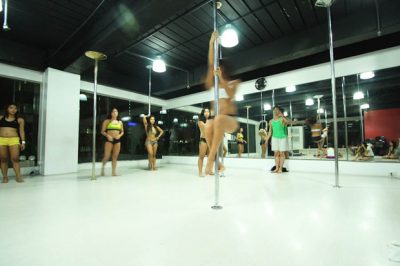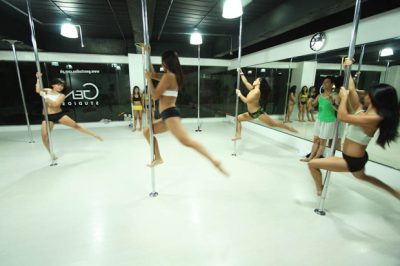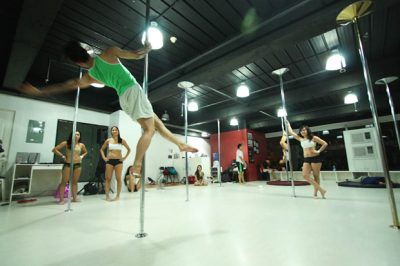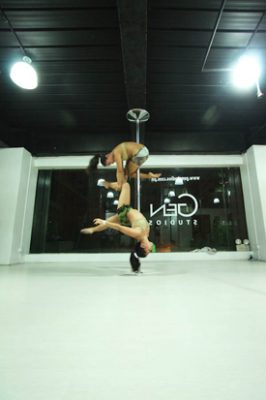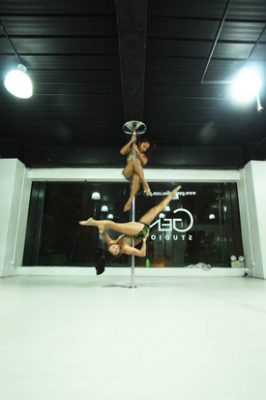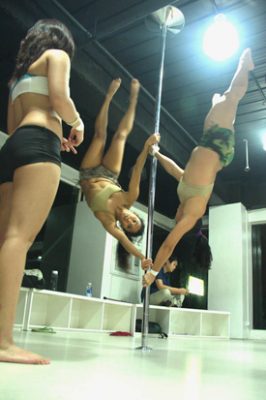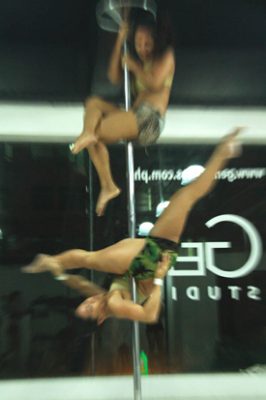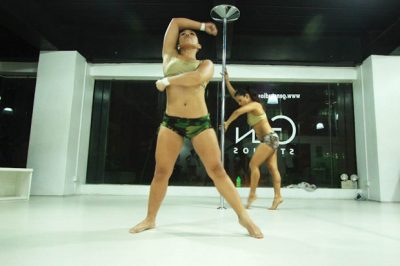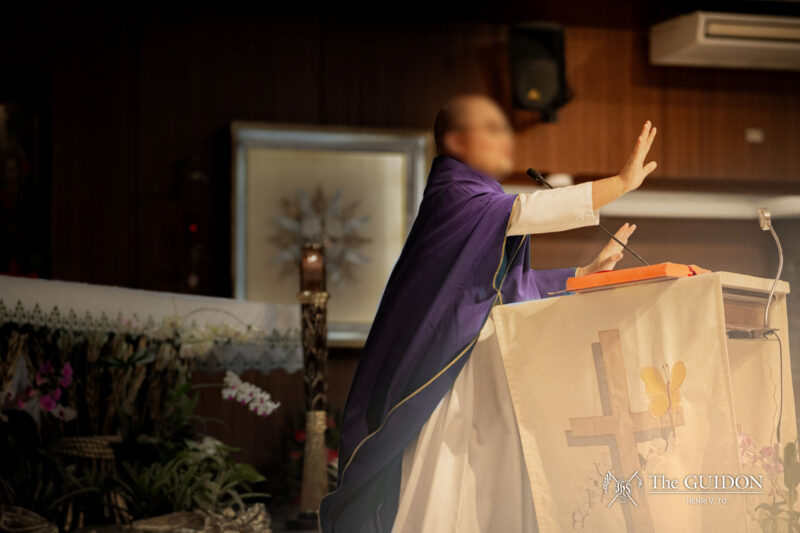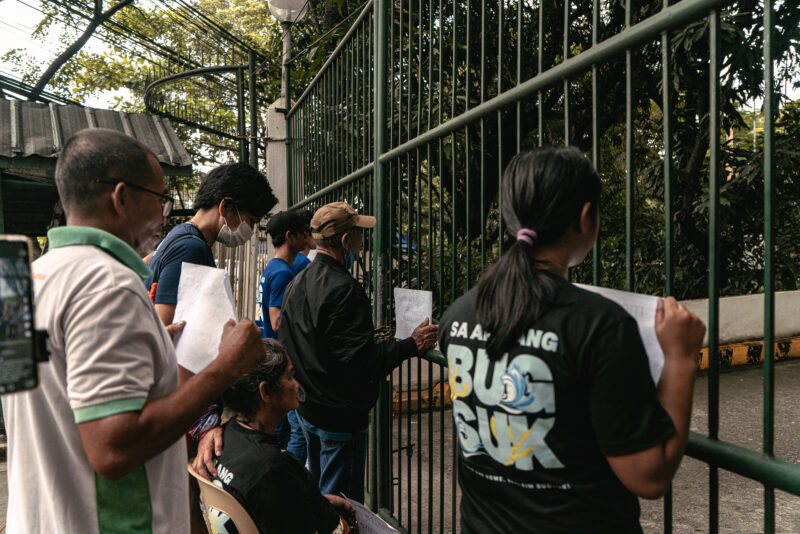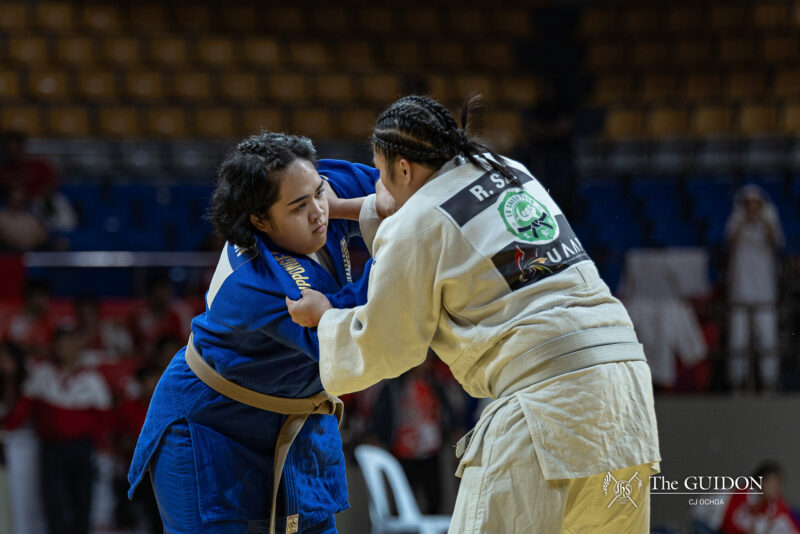The dance studio buzzed with restrained excitement. We stood by our poles, waiting for the cue. The silvery metal was cool to the touch, complementing the chill of my anxiousness. I tightened my grip. First pole spin attempt, here I go.
Whenever I heard about pole dancing classes before, I was apprehensive at the thought of trying them—a reaction which is neither new nor uncommon. Pole dancing is often expected to be hypersexual and dancers are assumed to be stripper-like, to say the least.
But pole dancing amounts to a lot more than what many assume. Though it celebrates sensuality, it goes beyond that—as a sport, an art, a discipline.
Firing it up
The roots of pole dancing as a sport in the Philippines lie in a dancer’s experimentation. As explained in Anne Jambora’s article in the Philippine Daily Inquirer, “Get sexy, pole dance,” seasoned dancer Ed Aniel married jazz moves to a pole for an acrobatic element. People noticed, and in 2009, Aniel founded Pole Academy Philippines (PAP). Since then, many schools have begun teaching pole dancing to Filipino enthusiasts.
At present, there are three major pole dancing schools: PAP, Movement Dance Studio and Polecats Manila. Founded by Ateneo alumna Christina Dy (AB IS ‘98), Polecats Manila is the first organized pole dance group in the Philippines and is the first to offer lessons from internationally certified pole instructors.
Each school presents a different flavor of the sport in terms of focus and choreography. “We’re the acrobatic school, [but] there’s also a sexy school,” Dy explains. PAP, for its part, offers a jazzy twist.
A variety of classes have also been developed. While the most common classes are based on levels of difficulty to ensure that the students progress in terms of skill, specialized classes like Polecats Manila’s Sensual Groove and Striptease mix different variants of pole dancing with other dance styles.
The lure of a challenge
As I learned firsthand, taking a pole dancing class is no joke. The professionals make it look easy, but pole dancing’s difficulty can’t be denied. The lifts seem simple, but they take strength and concentration to hold. And though I didn’t notice how much effort I was exerting at the time, my sore thighs and arms found it fit to remind me.
This actually makes it very rewarding. “You lift your [entire] body weight all the time, not those five-pound dumbbells,” Dy said in a video by loQal.ph, promoting pole dancing. Dy stands by the numerous health benefits of pole dancing, admitting to being overweight when she started. Since then, she has lost twenty pounds. Pole dancing won’t just help you become stronger and lose weight. “You feel hot! It’s emotionally and psychologically good for you,” Dy grinned.
Many college students and young professionals also engage in the sport—Ateneans included. Angela Escudero (II BFA ID), for example, takes classes at PAP. “The challenging nature of the exercise as well as the aesthetics pulled me toward it,” she says.
It’s challenging, but not impossible for beginners. At Polecats Manila’s Beginners 1 class, being guided through the whole-body coordination helped me execute the pole spins. One move I learned was the Fireman, which mimics the way firemen slide down poles, but with the legs close to the body and the feet pointed.
The high from that discovery, which seems to be common to all pole dancing students, is especially satisfying. As Escudero shares, “Learning new tricks and spins is something I look forward to every time I go to class!”
Artistic exploration
Pole dancing is not just a sport, but an art. This is hard to miss when watching the dancers performing their original choreography. Their sinuous movements combine gymnastic precision and confident sensuality, a feat that no doubt took countless hours to polish. “It’s like very graceful gymnastics,” Dy shares.
The gymnastic aspect is even more pronounced in men’s pole dancing. While watching a video of the winning performance of AJ Bautista at Singapore Acropolates Pole Challenge 2011, I was floored. His piece featured numerous inverts and acrobatic poses; though still graceful, the athleticism and balance involved in the art was emphasized.
However, many people still get the wrong idea. “At a [Polecats] gig in a bar, this foreigner threw money,” shares Dy. “Another time, people were shouting, ‘Make out na lang! Hubad na! (Kiss each other! Take off your clothes!)’”
Thus, pole dance groups in the Philippines are more than happy to showcase their artistry. They hold public performances, workshops and school visits to show people what pole dancing really is. The commotion it causes at first is only part of the message.
Dy says that its sensuality can be empowering, especially in the Philippines’ conservative society. Additionally, pole dance practitioners insist their craft is more than just a sexy workout—it can be a statement about changing rigid notions of culture and art.
In fact, Polecats Manila celebrated their second anniversary last October with Polarity, a dance concert which set original pole dance choreography to orchestral renditions of music by well-loved local bands, such as the Eraserheads, Up Dharma Down, Pedicab and Sugarfree.
Polar expansion
Pole dancing is about fluidity. Not only does it literally glide, but it moves and flows with the changing times, evolving and expanding.
“I understand that it’s going to take a while before people stop assuming that pole dancing is only for sex workers,” says Escudero. “But with companies like PAP promoting it as an art, I think it’s well on its way.”
Indeed, schools are continuing to professionalize and develop pole dance education. When asked about her hopes for pole dancing in the Philippines, Dy shares: “I hope for it to get bigger, that there will be more schools. Share the pole love!”
The difficulty in performing a spin is in finding the balance between holding on to the pole and pushing yourself into the movement’s swing. It’s the same with culture–one just needs to hold on and let it flow.
- Photo by Cherie P. Tan
- Photo by Cherie P. Tan
- Photo by Cherie P. Tan
- Photo by Cherie P. Tan
- Photo by Cherie P. Tan
- Photo by Cherie P. Tan
- Photo by Cherie P. Tan
- Photo by Cherie P. Tan
- Photo by Cherie P. Tan
- Photo by Cherie P. Tan
- Photo by Cherie P. Tan
- Photo by Cherie P. Tan
- Photo by Cherie P. Tan
- Photo by Cherie P. Tan
- Photo by Cherie P. Tan
- Photo by Cherie P. Tan
- Photo by Cherie P. Tan
- Photo by Cherie P. Tan
- Photo by Cherie P. Tan
- Photo by Cherie P. Tan
- Photo by Cherie P. Tan
- Photo by Cherie P. Tan
- Photo by Cherie P. Tan
- Photo by Cherie P. Tan
- Photo by Cherie P. Tan
- Photo by Cherie P. Tan
- Photo by Cherie P. Tan
- Photo by Cherie Tan
- Photo by Cherie P. Tan
- Photo by Cherie P. Tan
- Photo by Cherie P. Tan
- Photo by Cherie P. Tan
- Photo by Cherie P. Tan
- Photo by Cherie Tan
- Photo by Cherie P. Tan
- Photo by Cherie P. Tan
- Photo by Cherie P. Tan
- Photo by Cherie P. Tan
- Photo by Christella D. Soriano
- Photo by Christella D. Soriano
- Photo by Christella D. Soriano
- Photo by Christella D. Soriano
- Photo by Christella D. Soriano
- Photo by Christella D. Soriano
- Photo by Christella D. Soriano
- Photo by Christella D. Soriano
- Photo by Christella D. Soriano

